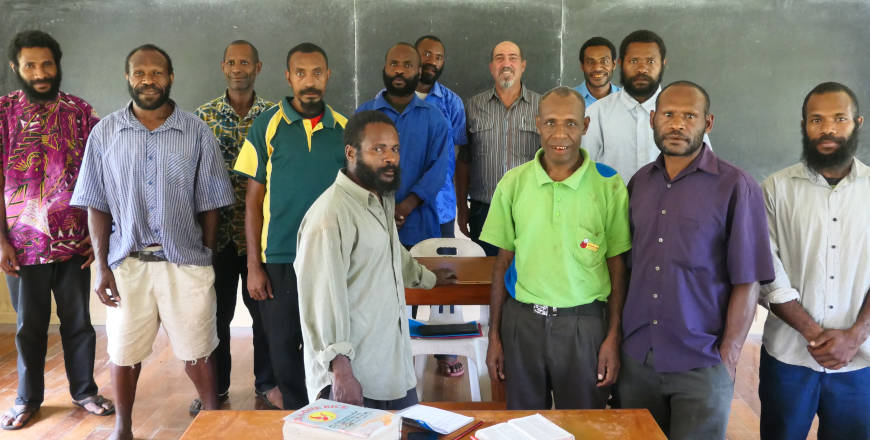We take for granted the use of computers. They are part of our entertainment, everyday communications and work life. They allow us to readily find information and aid our learning. In Papua New Guinea (PNG) computers are not a readily available resource, even for those who are studying. Where access is available, it’s often in […]
We take for granted the use of computers. They are part of our entertainment, everyday communications and work life. They allow us to readily find information and aid our learning.
In Papua New Guinea (PNG) computers are not a readily available resource, even for those who are studying. Where access is available, it’s often in a common room where many people must share just one or two computers.
Giesa Panpan, the ministerial training secretary for the Evangelical Lutheran Church–PNG, says while ‘computers and other technologies in schools and institutions are very helpful teaching and learning tools’, many PNG schools and institutions do not have access to them.
The five national church institutions of the ELC–PNG – three seminaries, a college and a lay people’s National Evangelist Training Centre (NETC) – and four district women’s ministry schools that operate under the Ministerial Training Department face this reality. Two computers cater for 50 students at the NETC at Amron in Madang Province, while just one desktop computer and printer cater for 90 students at Martin Luther Seminary in Lae.
Many faculty members cannot obtain a private laptop, desktop or smartphone to do their work. Likewise, the demand for computers from students is high. Currently, on average, there are 20 students to each computer in church institutions.
‘All teaching and learning manuscripts are required to be produced with typewriting, yet the lack of this vital technology suppresses that intention and hinders progressive efforts’, Giesa says. ‘Students expect their teachers to produce typed notes, yet some teachers don’t meet that demand. Most students submit their projects and assignments in [handwriting] because they are either computer illiterate or cannot access computers to do their work. Besides that, the books in the school libraries are very old and hard copies are not sufficiently available for everyone’s easy access.’
Giesa asks that Lutheran schools in Australia and other LCANZ workplaces consider donating second-hand laptops that are to be replaced, to the ELC–PNG.
‘Some computers will be placed in faculty common rooms or offices to help them gather information and produce notes for teaching and learning’, he says. ‘The student computers will be kept in the computer labs and used for training students. After school hours, students will use them for typewriting or to access books and information.’
If you feel that you could provide this kind of support, we would love to hear from you!
You can donate working computers (less than five years old) that you no longer need, and they will be refurbished and sent to PNG for use by students studying to be church workers. Please email lcaim@lca.org.au if you want to support people in this way.
Read more stories about our partner church in Papua New Guinea at https://www.lcamission.org.au/category/stories/international-partners/papua-new-guinea/


0 Comment